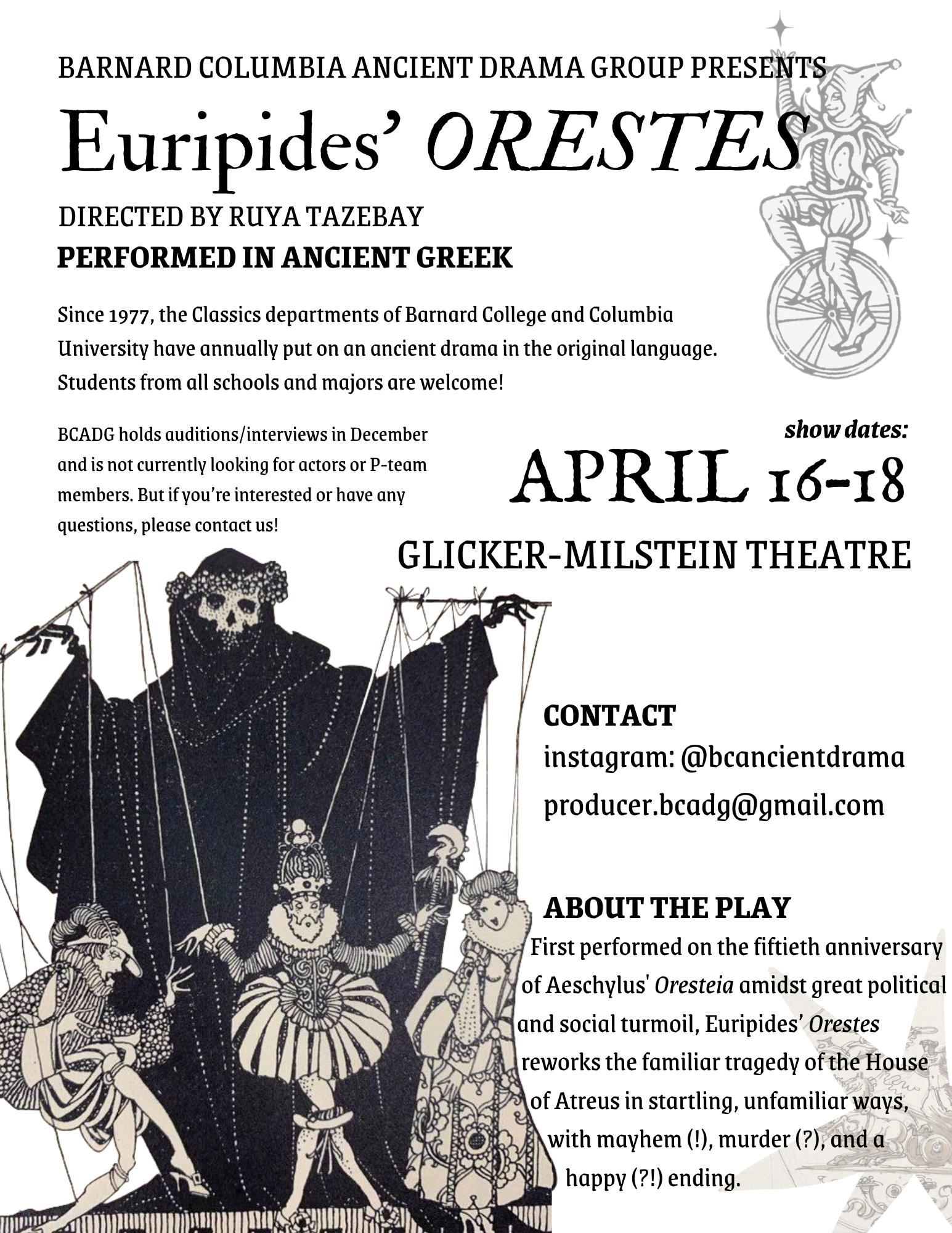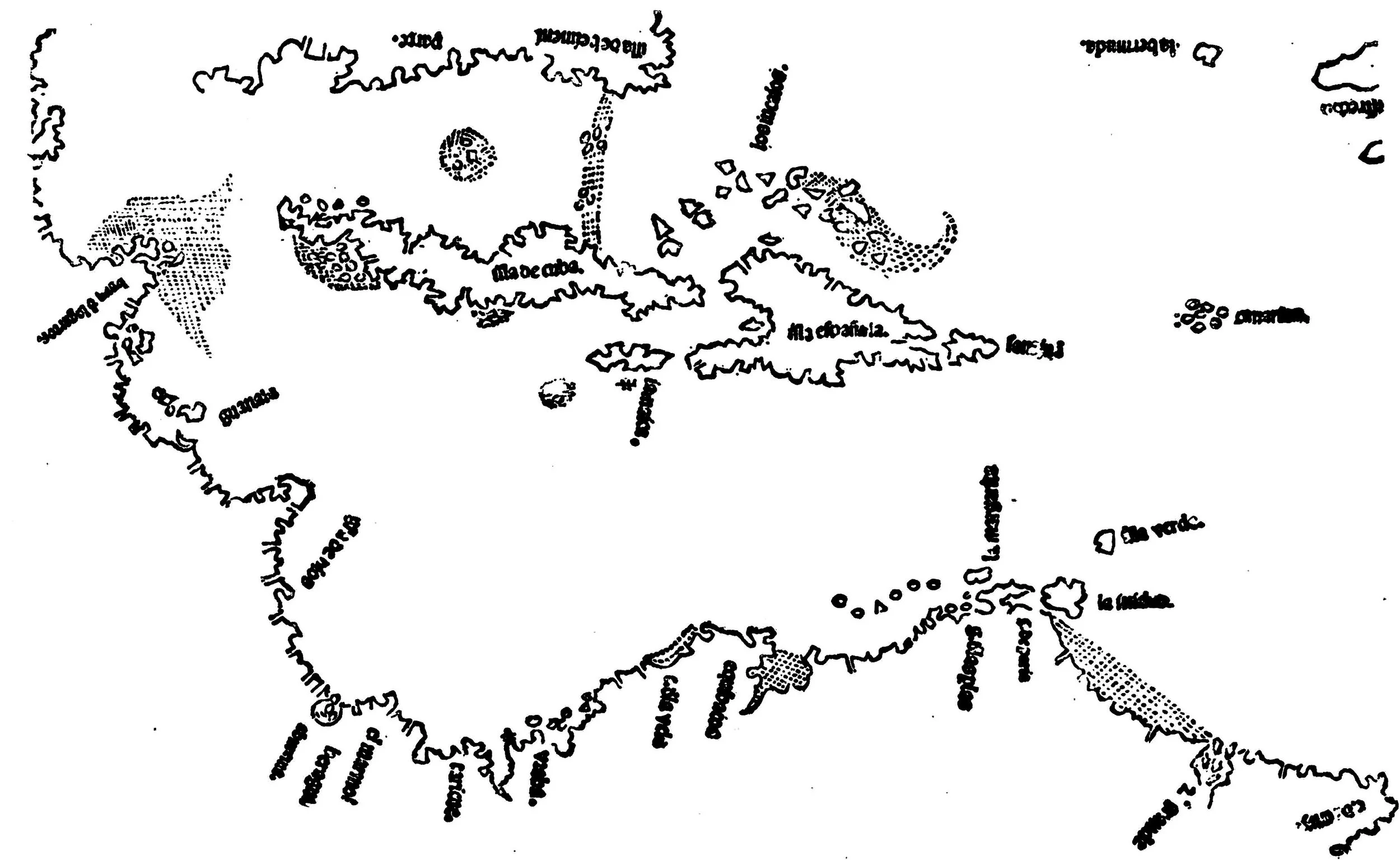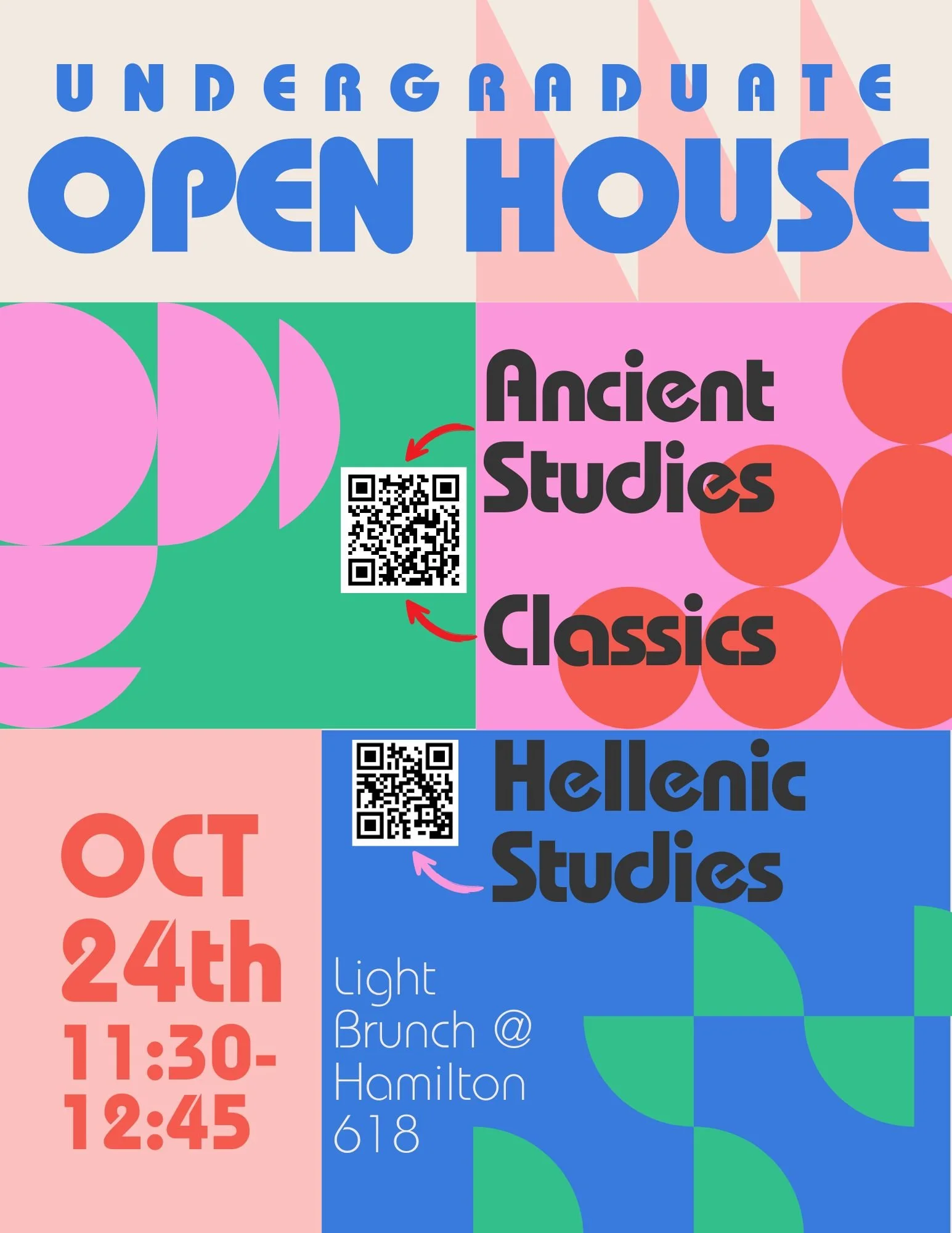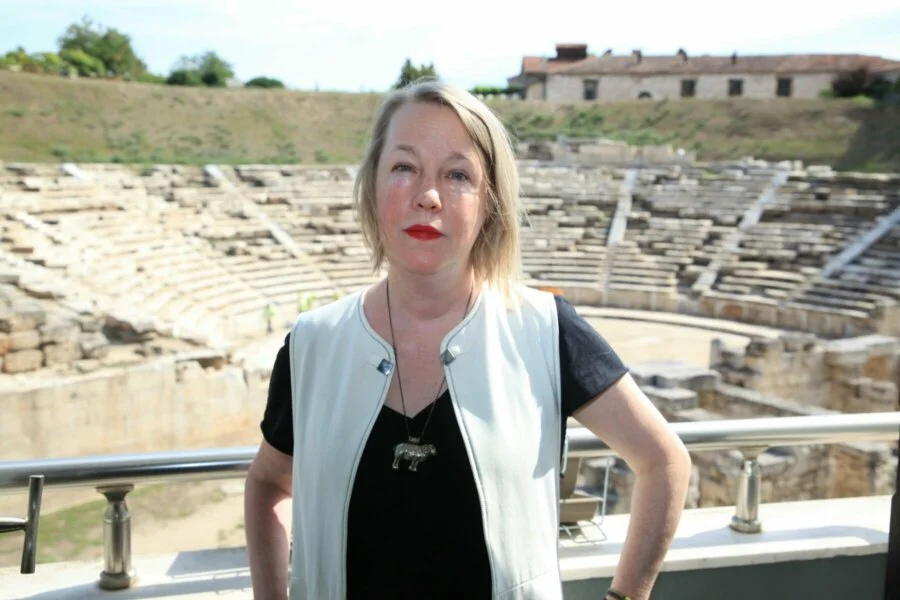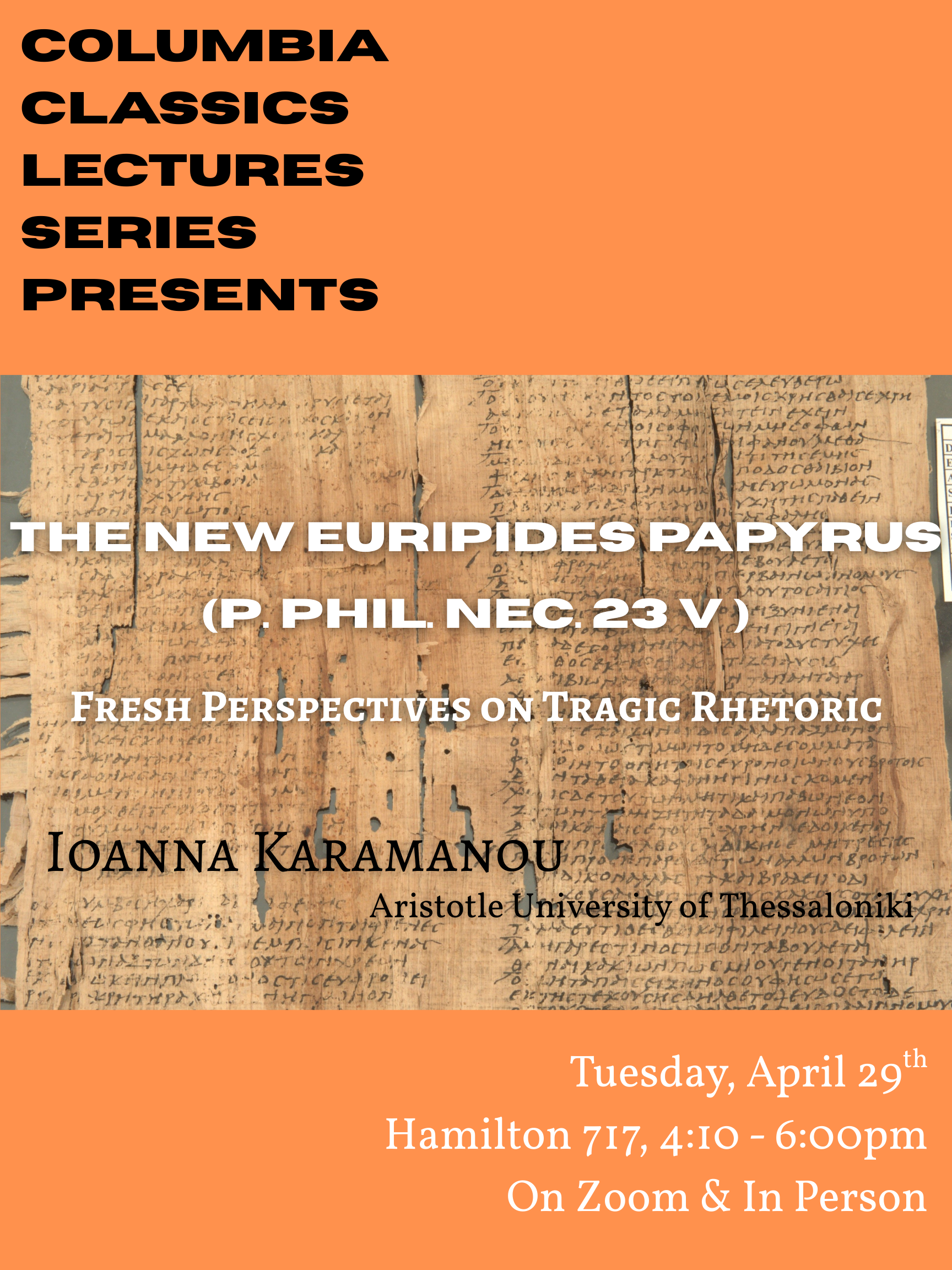The Trojan Women
by Euripides, translated by Paul Roche
Directed by Tea Alagić
October 16-18, 2025
Thursday, October 16, 7pm — GET TICKETS! (ALUMNI NIGHT!)
Friday, October 17, 7pm — GET TICKETS!
Saturday, October 18, 2pm — GET TICKETS!
Saturday, October 18, 7pm — GET TICKETS!
Minor Latham Playhouse, Milbank Hall 118
theatre.barnard.edu/events/trojan-women
Tickets:
$14 general admission
$7 with BC/CUID
The Trojan Women – Director’s Statement
The core of The Trojan Women revolves around the devastating aftermath of war: the fall of Troy. As the women of Troy are captured by the Greeks, they grapple with loss, exile, and uncertain futures. Our production at Barnard will be set in a modern-day, juvenile detention or refugee center. We will draw a direct line between ancient suffering and the current refugee crisis, particularly among young people.
The women of Troy are not only losing their homes but their autonomy, identities, and futures. In modern refugee crises, young people often experience similar displacements—losing not only their homes but also their families, communities, and safety. A refugee camp or juvenile detention facility serves as a modern-day version of this liminal space where these young individuals have no control over their fate. The allegory is powerful: both the Trojans and modern refugees are victimized by forces far beyond their control (war, geopolitical conflict, systemic violence).
In The Trojan Women, the majority of the characters are women, and their grief is both individual and collective. This is echoed in the experiences of young women refugees or detainees, who often bear the brunt of sexual violence, loss of family, and trauma. This context will allow us to explore the gendered dimensions of grief, as well as the solidarity that can emerge among women facing similar fates. Contemporary refugee narratives often emphasize the resilience of women, and this theme can be drawn out in the chorus, where each member represents the grief of an individual while collectively embodying the suffering of all displaced people.
-- Tea Alagić, Director
Scenic Designer Fuqing Yue
Costume Designer Karen Boyer
Lighting Designer Betsy Chester
Composer & Sound Designer Robert M Johanson
Video Designer Yana Biryukova
Assistant Director Abigail Fixel
Stage Manager Rosie Peppe
Choreographer Sarah Kaplan
with Barnard and Columbia students: Bijan Atri, Emerson Antunes Black, Bess Blackburn, Zoë Chang, Jia Dixit, Anaitzel Franco, Bryan Jackson, Desislava Kremenlieva, Kiana Mottahedan, Isabel Tongson, Margaret Townsend, and Norah Vlas.


